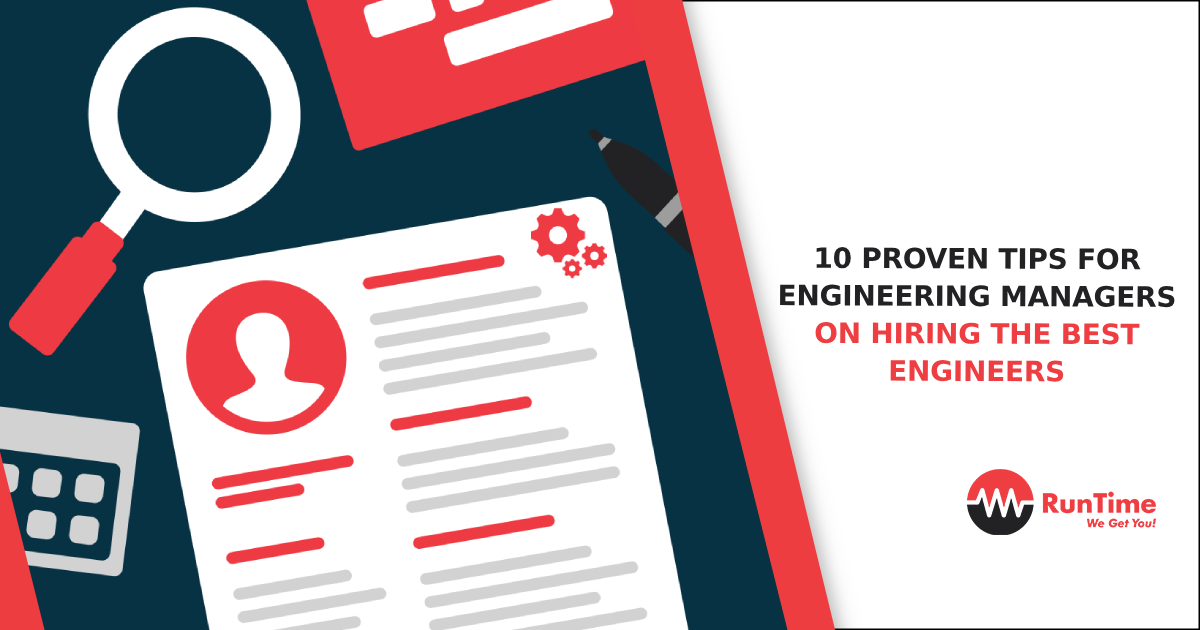In the current competitive job market, it’s crucial for engineering managers to not only hire competent engineers but to hire the best. This task requires a delicate balance of assessing technical skills, personal attributes, and cultural fit. This comprehensive guide provides ten actionable tips to help engineering managers recruit top engineering talent.
1. Define the Role Clearly
Clearly defining the role is the foundation of a successful hiring process. Consider the skills, experiences, and personal attributes required. Also, take into account your team’s composition and the projects on the horizon. Understanding the job needs will help create an effective job description and selection criteria.
2. Use Multiple Sourcing Strategies
Don’t limit your search to a single platform or method. Diversify your sourcing strategies to reach a wider pool of talent. Utilize professional networking sites like LinkedIn, job boards, company career pages, and engineering forums. Also, consider working with recruitment agencies specializing in engineering talent.
3. Leverage Your Network
Your professional network can be a goldmine of potential candidates. Leverage your connections, and encourage your team members to do the same. Personal referrals can often lead to high-quality candidates who might not have otherwise been on your radar.
4. Highlight Your Company’s Unique Selling Points
To attract top talent, you need to sell your company as much as the candidates need to sell themselves. Highlight what sets your organization apart — it could be exciting projects, cutting-edge technology, opportunities for professional growth, or a great work culture. Make these points clear in your job postings, company website, and during interviews.
5. Screen for Soft Skills
While it’s crucial to assess a candidate’s technical competencies, don’t overlook soft skills. Skills like problem-solving, communication, adaptability, and teamwork are just as critical for success. Ask behavioral questions during interviews to assess these attributes and consider incorporating situational judgment tests in your screening process.
6. Use Technical Assessments Wisely
Technical assessments can provide valuable insights into a candidate’s skills. However, use these assessments judiciously. A poorly designed or overly complex test can discourage potential candidates. Remember, the goal is not just to assess their current skills but to see their problem-solving approach and ability to learn.
7. Involve the Team
Include your current team members in the hiring process. They can offer a unique perspective on the candidate’s potential fit and technical skills. This involvement can also increase the team’s acceptance of the new hire.
8. Communicate Efficiently and Transparently
Ensure open lines of communication throughout the hiring process. Provide clear information about the timeline, steps involved, and the candidate’s expectations. Regular updates, even if it’s to say there’s no update, can keep candidates engaged.
9. Make a Competitive Offer
A competitive salary is a significant factor, but it’s not the only one. Consider what else you can offer — flexible working conditions, professional development opportunities, a strong benefits package, or challenging projects. Tailor your offer to the candidate’s motivations and career goals.
Move quickly to extend the offer and follow up with the candidate to ensure they don’t lose interest.
10. Don’t Forget About Onboarding
A well-structured onboarding process can set your new hires up for success and make them feel part of the team faster. This process should provide all the necessary job-related information, introduce them to team members, and set initial objectives. A positive onboarding experience can contribute to longer-term job satisfaction and retention.
Conclusion
Hiring top engineers requires strategic planning, effective communication, and a balanced assessment of technical and soft skills. While the process may seem challenging, following these ten tips can streamline your efforts and increase the likelihood of securing high-performing engineers. Remember, hiring is only the first step. Fostering a supportive environment that enables continuous learning and growth is critical to retaining your talented engineers.
Defining roles, diversifying sourcing strategies, leveraging networks, and showcasing your company’s unique attributes can enhance the initial recruitment phase. Screening for soft skills, using technical assessments wisely, and involving the team can provide a comprehensive understanding of candidates’ competencies and cultural fit.
Maintaining transparent communication throughout the hiring process ensures that candidates feel valued and respected, enhancing their perception of your organization. Crafting a competitive offer that extends beyond salary and considers factors like work-life balance, career growth, and benefits, makes your proposition more attractive to top engineering talent. Move quickly to close the candidate.
Finally, a structured onboarding process is essential for integrating new hires into your team and setting them up for success. A positive onboarding experience can significantly improve job satisfaction and enhance retention rates.
These 10 tips, while not exhaustive, provide a robust framework for engineering managers to attract, recruit, and retain the best engineers. A well-rounded team of top engineering talent can accelerate innovation, enhance project execution, and drive the growth of your organization. In today’s competitive business environment, investing time and resources into effective hiring practices can yield substantial long-term dividends.









